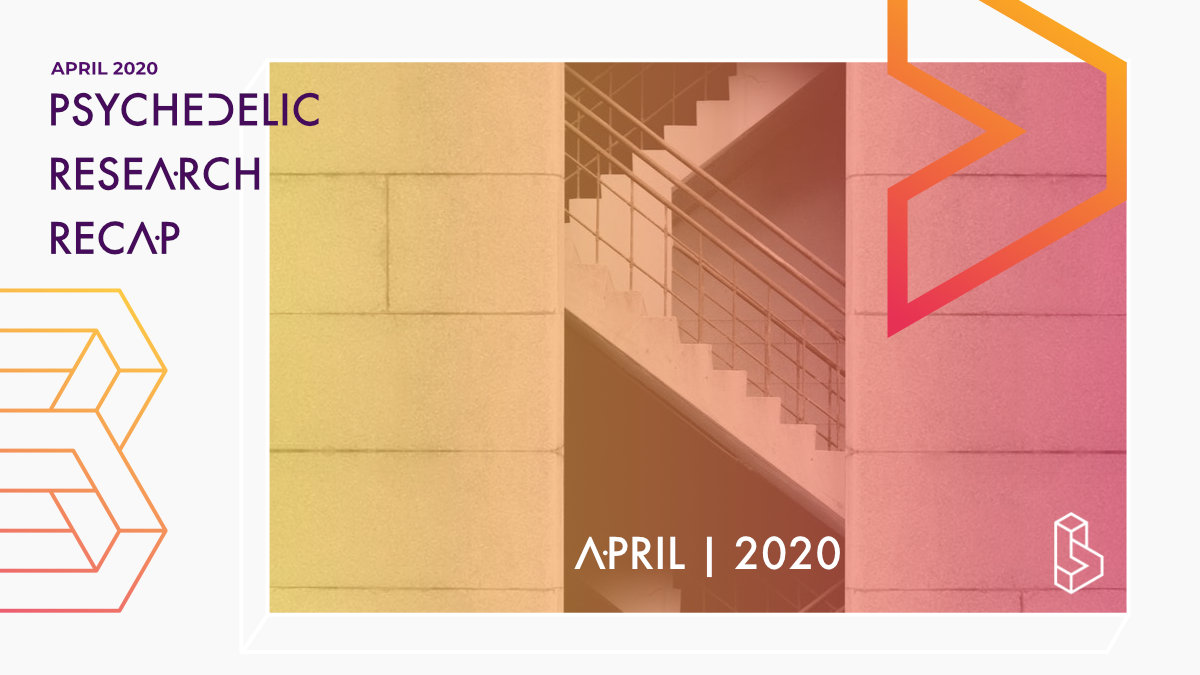April has been a slow month (probably related to COVID-19). There are many ongoing trials with ketamine and researchers should note them and not only look at finished studies to determine their research direction. Microdosing psychedelics remains interesting, yet not studied in a very controlled way.
Registered clinical trials investigating ketamine for psychiatric disorders
Authors: Bahareh Peyrovian, RogerS. McIntyre, Lee Phan, Leanna M.W. Lui, Hartej Gill, Amna Majeed, David Chen-Li, Flora Nasri & Joshua D. Rosenblat
Published: 9 Apr 2020
One sentence summary: There are currently 140 registered ketamine trials, mostly for mood disorders, mostly via intravenous administration, mostly phase I and II.
“As interest has grown in the potential psychiatric applications of ketamine, the number of registered clinical trials has grown substantially. Herein, we summarize and analyze clinical trials registered with ClinicalTrials.gov that assess the treatment of any psychiatric disorder with ketamine or ketamine enantiomers (e.g., S-ketamine, R-ketamine), with a focus on ongoing clinical trials. A ClinicalTrials.gov search on February 21, 2020 returned 140 registered trials. Frequency data was analyzed to determine the distribution of study designs. The majority of trials (70%) investigated the therapeutic effect of ketamine in mood disorders (unipolar: 60%, bipolar: 0.7%, both: 5.7%). Suicidal ideation (13.1%), post-traumatic stress disorder (5.4%), and obsessive-compulsive disorder (3.6%) were also investigated. Intravenous (IV) administration was the most common route with 87% of the studies using IV ketamine. Single-dose studies represented 50% of IV ketamine studies. Few studies were assessing maintenance treatment. Most studies were phase I or II with few definitive phase III trials registered. Given the large number of ongoing studies assessing psychiatric application of ketamine, researchers and relevant stakeholders should consider not only completed, published studies, but also ongoing registered studies in adjudicating the most relevant research questions. More definitive phase III trials and maintenance studies of IV ketamine for mood disorders are required, as numerous completed and ongoing studies have already assessed and demonstrated the proof-of-concept of acute antidepressant effects in phase I and II trials.“
Microdosing Psychedelics: Subjective Benefits and Challenges, Substance Testing Behavior, and the Relevance of Intention
Authors: Rotem Petranker, Thomas Anderson, Larissa Maier, Monica Barratt, Jason Ferris & Adam Winstock
Published: 14 Apr 2020 (pre-print linked)
One sentence summary: Microdosing had fewer side-effects than previously found, this was measured with the Global Drug Survey 2019.
“Background: Microdosing psychedelics – the practice of taking small, sub-hallucinogenic doses of substances like LSD or psilocybin-containing mushrooms – is becoming increasingly popular. Despite its surging popularity, little is known about the effects of this practice. Aims: This research had two main aims. First, we attempted to replicate previous findings in the literature regarding the subjective benefits and challenges reported for microdosing. Second, we measured whether people who microdose test their substances for purity before consumption and whether having an approach-intention to microdosing was predictive of more reported benefits. Methods: The Global Drug Survey (GDS) runs the world’s largest drug survey. Participants responding to GDS2019 who reported last year use of LSD or psilocybin were offered the opportunity to answer a specialist sub-section on microdosing. Results: Data from 6,753 people who reported microdosing at least once in the last 12 months were used for analyses. Our results suggest a partial replication of previous benefits and challenges with the present sample often reporting enhanced mood, creativity, focus, and sociability. Against our prediction and quite remarkably, the most common challenge participants associated with microdosing was “none”. As predicted, most participants reported not testing their substances. Counter to our hypothesis, approach-intention predicted less rather than more benefits when microdosing. We discuss alternate theoretical frameworks that may better capture the reasons people microdose. Conclusion: Our results suggest that the benefits associated with microdosing greatly outweigh the challenges. Microdosing may have utility for a variety of uses while having minimal side-effects. However, double-blind, placebo-controlled experiments are still required in order to substantiate these reports.”
Related papers
Use CTRL/CMD+F to quickly search if anything relevant for you has been published this month.
- Psychedelic Psychiatry’s Brave New World (commentary by David Nutt, David Erritzoe, Robin Carhart-Harris)
- One Dose of Psilocybin in Late Adolescence Mitigates Deleterious Effects of Developmental Stress on Cognition and Behavioral Despair in Adult Female Rats (very specific research in rats, sponsored by Eleusis – researching anti-inflammatory aspects of psychedelics)
- The Efficacy of Psilocybin Compared to Selective Serotonin Reuptake Inhibitors in the Treatment of Adults with Major Depressive Disorder (literature study, 7 articles, positive comparison of psilocybin versus SSRIs for treatment of major depression)
- Intrinsic Motivations and Perceived Benefits of U.S. Males for Taking Dimethyltryptamine (dissertation, n=13)
- MDMA interactions with pharmaceuticals and drugs of abuse (MDMA has interactions with other drugs, but much is not studied yet)
- Dynamic coupling of whole-brain neuronal and neurotransmitter systems (dMRI, fMRI, and PET study with psilocybin to link anatomy and function of the brain)
- Subacute effects of the psychedelic ayahuasca on the salience and default mode networks (subacute changes in higher-order brain networks)
Become a psychedelic insider
Get a Pro Membership to enjoy these benefits & support Blossom📈 full reports on Topics & Compounds
🧵 full summary reviews of research papers
🚀 full access to new articles
See Memberships

